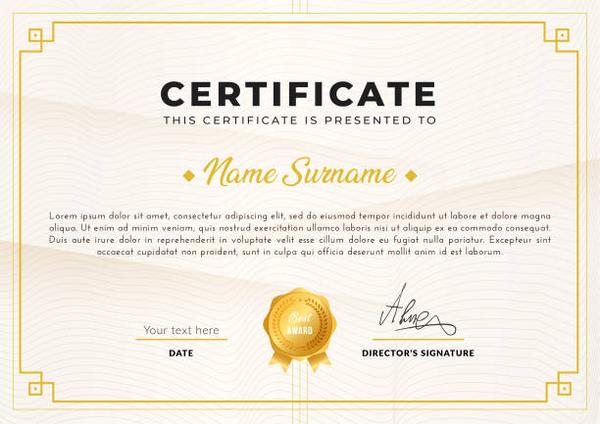Legal Risks and Consequences of Using Fake Degree Certificates: What You Need to Know
Some companies will create degrees from any university that you choose. They can even pair it with fake transcripts if you like.
Lying about your credentials is illegal in many states. It can even be a felony. For example, if you make false claims about your engineering degree and it causes structural damage, you could be facing thousands in fines.
Legal Consequences
Unlike many white collar crimes that make national headlines when someone is caught, diploma mill scams are often left unchallenged. It is not difficult to understand why.
While it is not illegal to buy a fake degree online, there are a number of legal consequences for those who do so. The most obvious is that if a person uses a fake degree to apply for employment or for professional licensing, they could be subject to prosecution.
There are also legal ramifications for the seller of the fake diploma. They could be found guilty of violating state and federal laws. In addition, they could be sued by their customers for negligence and fraud.
Legitimate universities should work to prevent this kind of fraud. They can do this by being more transparent about their admissions process and training their staff to spot academic fraud. Additionally, they https://lambangnhanh.com/ can require applicants to pass standardized tests before being admitted. This can help prevent degrees being awarded based solely on life experience. It is important for these measures to be implemented so that fraudulent degrees are not being rewarded with real jobs or licenses.
Criminal Charges
In some cases, fraudulent diplomas can lead to criminal charges. For example, in a scheme dubbed Operation Nightingale, prosecutors charged twenty-five people in Miami for their roles in selling more than 7,600 fake nursing diplomas from three Florida colleges. The fake transcripts allowed purchasers to sit for licensing exams and obtain jobs as registered nurses or licensed practical and vocational nurses in multiple states.
The fake diplomas and transcripts were allegedly issued by Siena College of Health in Lauderhill, Sacred Heart International Institute in Fort Lauderdale and Palm Beach School of Nursing in Palm Beach County. The fake transcripts allegedly included courses that were never taken and allowed students to backdate their degrees. The diplomas were also sold with phony verification services to give employers and others a false sense of security about the legitimacy of the degrees.
Many of the purchasers were from South Florida’s Haitian-American community, including some who already had LPN licenses and wanted to become registered nurses. Federal prosecutors said they face up to 20 years in jail. The fake credentials cost buyers a total of $114 million. Officials say about 2,400 of the students who bought them passed their licensing exams, mostly in New York. They’ll likely lose their certification but probably won’t be criminally charged.
Employment Risks
Aside from the legal risks, fake certificates also carry significant employment ramifications. Employers must take care to thoroughly verify a job applicant’s claimed academic credentials. This can be a time-consuming process, especially when the applicant has inflated or exaggerated their qualifications.
Fake diplomas can lead to incompetence in the workplace, resulting in substandard work and potentially putting lives at risk. Furthermore, employees whose fraudulent credentials are exposed may lose the trust of colleagues and employers. This can have long-term effects on their professional careers and life as a whole.
Individuals and businesses should take a number of measures to prevent the use of fake degrees, including implementing comprehensive background checks that include verification of academic qualifications and establishing clear policies regarding the reporting of changes in educational credentials. Barada Associates offers these services, helping to ensure that all aspects of a candidate’s background are meticulously verified. Contact us today to learn more about our educational verification services.
Civil Penalties
The world of academic fraud is a billion-dollar industry, and it can be difficult to police. For example, a Western Australian MP and former police officer was recently sentenced to three years in jail after using a fake degree from UK universities for his job applications.
Fake certificate makers are often able to make degrees that are aesthetically identical to those from legitimate universities, including the same paper, fonts and print formats. The bogus certificates can also be presented to employers for verification purposes.
One of the most common ways to spot a fake certificate is by looking at the language on it. The use of Latin terminology is a dead giveaway, as universities rarely issue diplomas in Latin. In addition, spelling errors and grammatical mistakes are also warning signs. In addition, if the university does not have any record of the student, this should raise suspicions. Also, if the school name sounds familiar, check the history of that university. For example, if the university is the result of a merger or name change, such as City of London Polytechnic becoming London Metropolitan University, this may indicate a counterfeit document.
Professional Licensing Issues
Many people purchase fake degrees because they can’t afford university fees or don’t have the time for a full course of study, but these fake qualifications are causing serious issues. They undermine the hard work and genuine knowledge of real graduates, and they can even place lives at risk if someone is working in high-risk professions without the proper training.
When assessing a fake degree, there are several warning signs to watch out for. For example, a spelling mistake in the title of the university on the certificate could be a sign that it’s not legitimate. Another tip-off is if the university claims to be located in a state or country in which it’s not actually situated.
To tackle this problem, the world’s leading universities are developing blockchain-based credentials that can be verified using a smartphone app. These are designed to help protect graduates from fraud and prevent diploma mills by making it impossible for them to sell fake qualifications.

